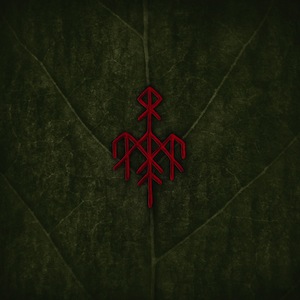Listening to the music of Wardruna feels like a travel back in time, but to an age that maybe only ever existed, and continues to exist, in the minds of its creators and, by extension, those who dare to delve into this strange, and sometimes unsettling, world. Yggdrasil is the second part of a trilogy based on 24 ancient Scandinavian runes known as the elder futhark, and the trio of vocalist Lindy-Fay Hella and former Gorgoroth members Einar Kvitrafn Selvik (instruments) and Gaahl (vocals) duly sing lyrics in Old Norse and Proto-Norse in addition to their native Norwegian, and are joined by famed Icelandic rímur (a form of traditional epic poetry set to music) composer Hilmar Örn Hilmarsson and singer Steindór Andersen, effectively broadening the scope of their project beyond the confines of the core trio’s homeland. I may not understand the words, but an aura of pagan folk authenticity permeates each song.
Listening to Yggdrasil is like being taken on a journey, from the opening nature sounds (several of the tracks were recorded outdoors) and moody chants that usher in ‘Rotlaust tre fell’, you are transported to dark, snow-covered forests, surrounded by what sounds like a cluster of incantatory pagan sorcerers. The blend of voices is sumptuous, from Ghaal’s harsh, low snarl to Lindy-Fay Hella’s sweeping soprano, with the other singers nestling somewhere in between. As the tracks build up, these multi-faceted voices merge, splinter and contrast with one another, adding dramatic, even cinematic potency to their oblique narratives. Second track ‘Fehu’ is a gorgeous demonstration of this, as Hella’s graceful ululations echo the earthier tones of her compadres to a backdrop of driving percussion and swirling violin and mandolin melodies. I’m instantly reminded of the wind-swept post-Fairport Convention debut by Sandy Denny, The North Star Grassman And The Ravens, and, naturally, Comus’ pitch-black take on English folk.
Such comparisons to vintage British folk, however, only paint part of the Wardruna picture, because Yggdrasil is by no means retro-sounding, with traces of Selvik and Ghaal’s black metal roots filtering into the songs to colour them with a sense of deep foreboding. A lot of modern metal, notably doom, explores the primeval power inherent in nature, and Wardruna achieve something similar, but using droning strings, metronomic percussion and massed vocals instead of crushing bass and guitar riffs, arguably with more emphatic results, especially when deployed amidst sounds of crashing thunder, footsteps crunching on snow and driving rain. Wardruna’s music sounds alive, as if the nature the group so effectively evokes has seeped into the listener’s synapses. Again, you don’t have to understand the lyrics to feel affected by them.
Perhaps Wardruna’s closest musical cousins are the likes of Finland’s Tenhi or America’s Wolves In The Throne Room, bands who, similarly, cross the borders between European folk’s arcane origins and black metal’s theatrical malevolence. But where those two bands crawl through the murk with frenetic, single-minded determination (with spectacular results), Yggdrasil lives up to its name – that of the giant tree central to Norse mythology – by stretching out into both darkness and light, a musical ying and yang, like branches creeping into sunlight as they grow up out of a shadowy forest.


